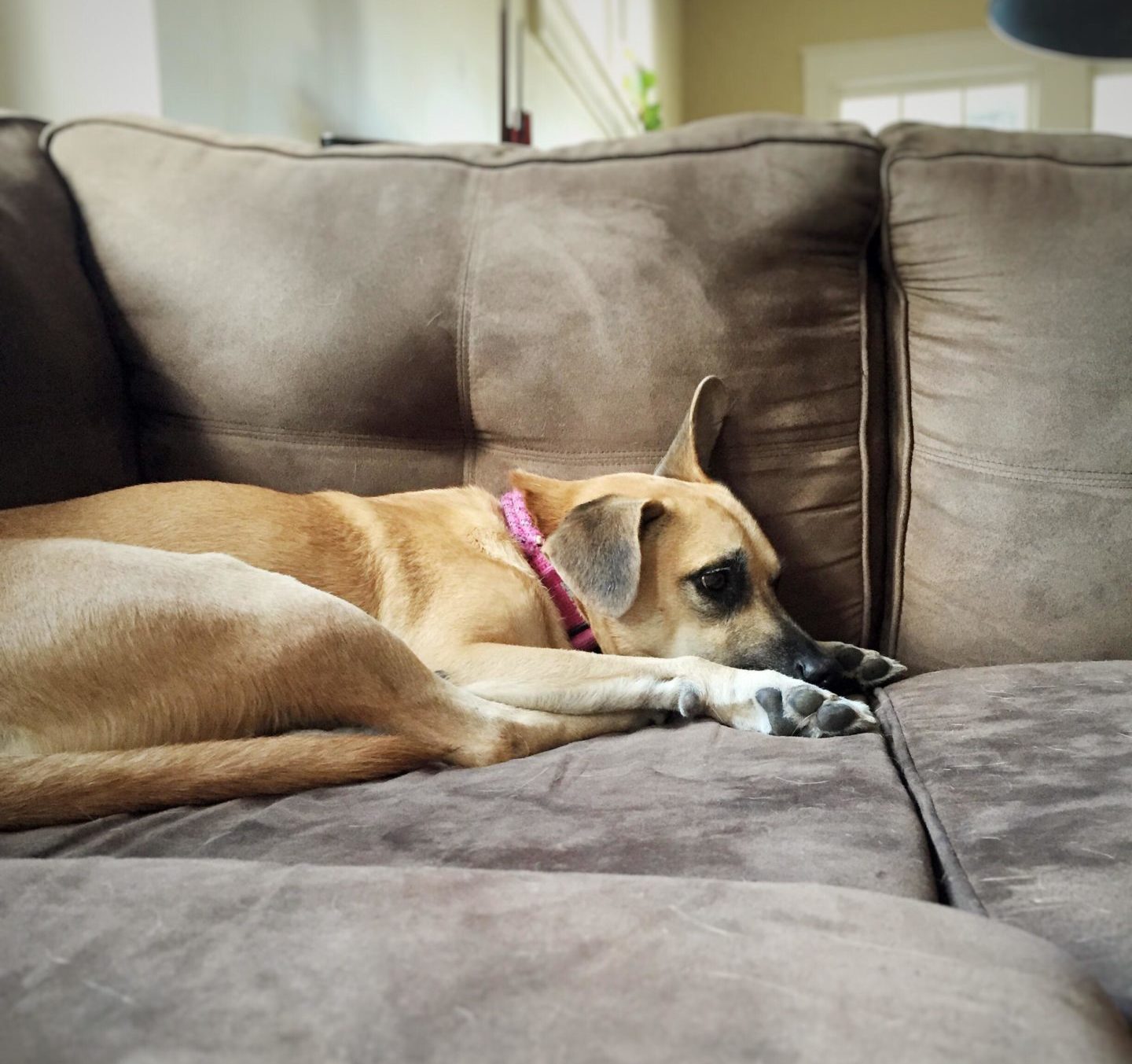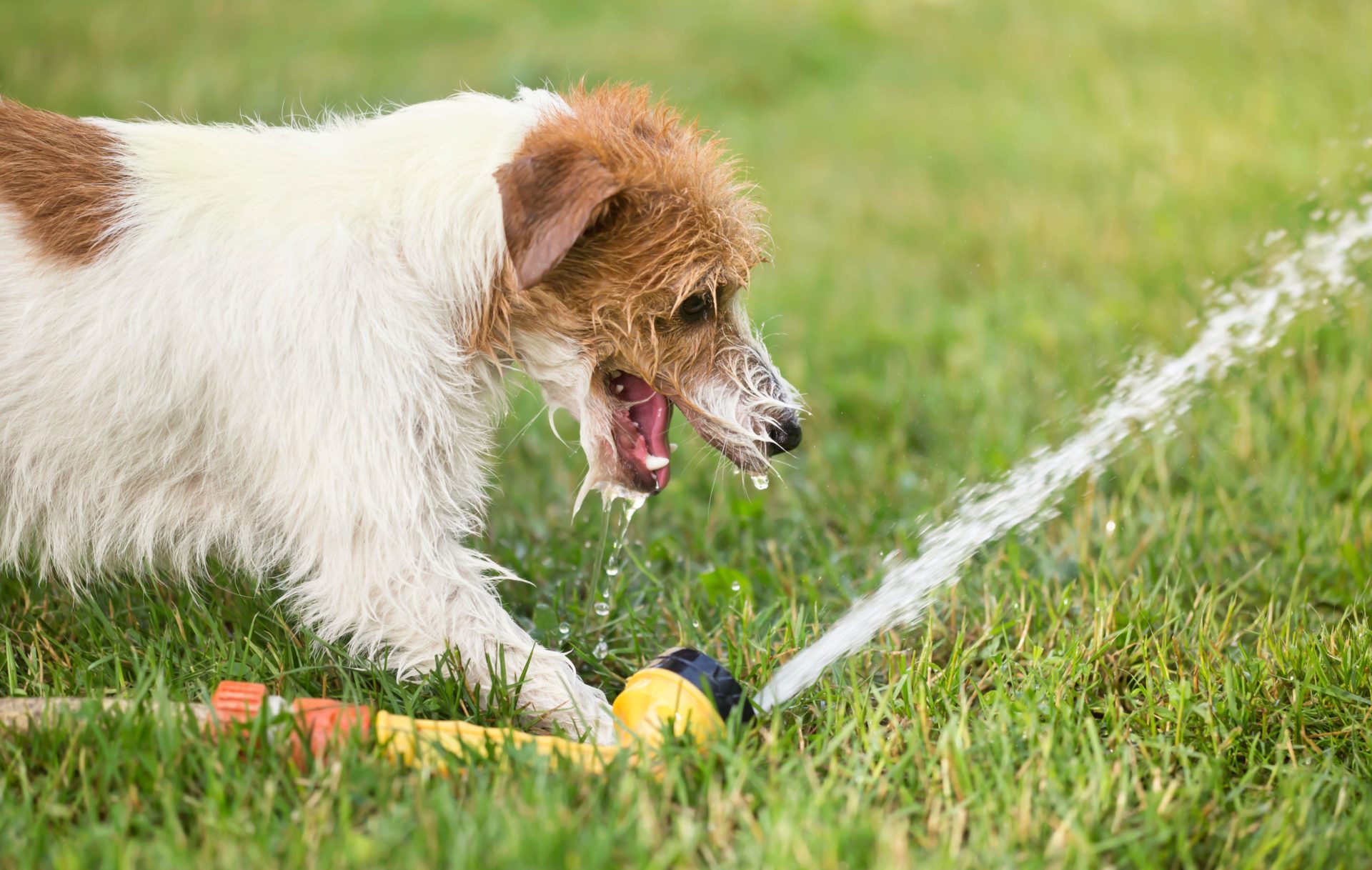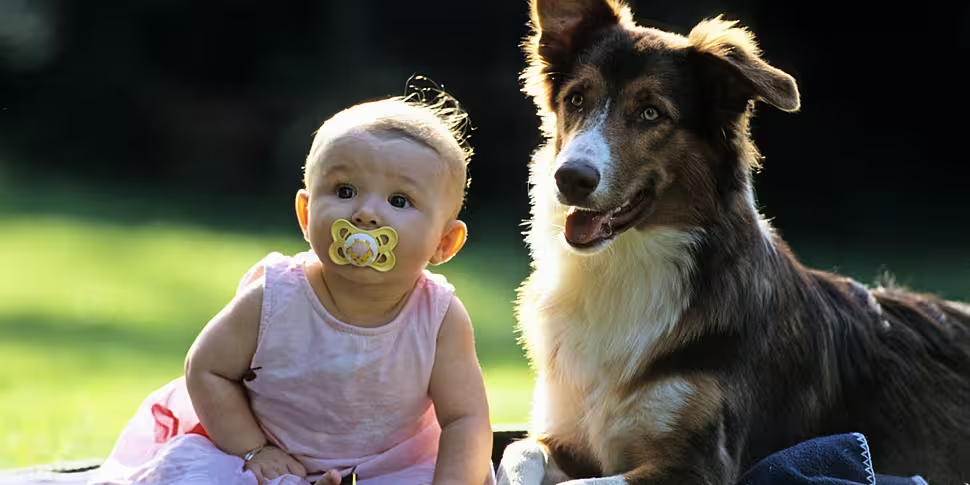Dog owners expecting a baby are being urged to start training them ‘early and often’ ahead of the new arrival.
It comes after a ‘harrowing’ tragedy in which a young baby was killed by a family dog in Waterford.
Speaking at an inquest into the death of three-month-old Mia O'Connell from Clashmore, coroner Philip Comyn urged new parents to exercise “extreme vigilance” when it comes to their baby and their dog.
He said dogs are wonderful companions but are “still animals and can still be unpredictable” when a new family member arrives.
 A dog resting on a couch. Picture by: Lisa123456 / Stockimo / Alamy Stock Photo
A dog resting on a couch. Picture by: Lisa123456 / Stockimo / Alamy Stock PhotoThis morning, dog trainer Lesley Townsend told Newstalk there are lots of little ways to prepare your dog for the new arrival.
“Really, the most important thing is to start early and often,” she said.
“So, as soon as you know you are expecting, you can start introducing some techniques to help your dog acclimate to your baby arriving and to really prepare everyone for what’s going to be a massive lifestyle change – and lifestyle change not just for us, but also for our dogs.”
Human
Lesley said one thing to remember is that dogs don’t actually understand that babies are humans.
“Babies make weird squeaky noise, the smell quite delicious - they usually smell like milk or maybe like nappies - and it’s understandable that your dog will take extra interest in something like that,” she said.
“So what we want to do is test out and see where the trigger points are.”
 Happy wet puppy pet dog playing with water, drinking from sprinkler in summer
Happy wet puppy pet dog playing with water, drinking from sprinkler in summerShe said the first thing to do is make yourself a ‘fake baby’ and see how your dog reacts when you carry it around the house.
“Start off by carrying a towel or a blanket wrapped up that is going to be essentially a fake baby,” she said.
“Move around the house and see how the dog feels about you carrying something, while the dog is moving around or while you’re sitting on the couch.”
Baby noises
Lesley said another good trick is to start playing baby noises in the home and slowly increasing the volume to see how your dog reacts.
“The other thing they can do is, they can really start teaching their dogs some very basic behaviours.
“So, for example, a 'sit' when carrying the baby around or they can teach the dog to go to bed, so the dog has a place to settle when they’re sharing space with the baby
“They also need to teach the dog some swapping and dropping cues because babies bring lots of exciting new things into the house; like toys, socks, nice plush things, bibs, nappies – lots of things that dogs find exciting and might want to steal.
“So, teaching dogs some really basic obedience cues can really help parents maintain control of their dogs when they are sharing space with them.
"Active and aware"
Lesley said it is essential to have “active and aware supervision” at all times when dog and baby are together.
“That means you are within reach of your dog and your baby and you’re focused on what they are doing,” she said.
“A really good example of a lack of supervision whilst in the same room would be, you are in the kitchen with your dog and your baby – but you’re talking on the phone or you are cooking.
“It is really hard to do those things at the same time. Similarly, when you are driving, you can’t supervise your dog and your baby.
“When you are sleeping upstairs, if your dog sleeps on your bed or in your room for example, you can’t supervise.
“So, you need to start thinking about all the situations where your dog might get unsupervised access to your baby – because you’re distracted or you are tired – and how can you prevent that from happening.”
 A brown mixed-breed dog with floppy ears wearing a red collar. Picture by: Mary H. Swift / Alamy Stock Photo
A brown mixed-breed dog with floppy ears wearing a red collar. Picture by: Mary H. Swift / Alamy Stock PhotoLesley encouraged expectant parents to purchase room dividers and baby gates - and get their dog used to them long before baby arrives.
“It’s important your dog learns now that, when they’re behind that divider, when they are behind that gate or when they are in that crate, that good things happen there,” she said.
“So, you can start introducing activities chews and pleasant experiences for them so they learn to settle now, well before your baby arrives.
“Don’t forget as well that, if you do this in gradual increments and use lots of rewards and praise, your dog will really enjoy the experience and you won’t feel as stressed.
“What we don’t want is for dogs to feel punished when babies are around or for dogs to feel scared or unsafe – because if they feel scared or unsafe they are more likely to growl or snap or bite.”
With the right moves, Lesley said, parents can ensure the arrival of a new baby is a joyous occasion for everyone – including your dog.
Andrew Lowth and Michael Staines.









